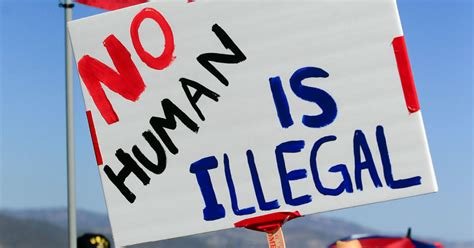
Immigration Policies: The Impact of Far-Right Ideologies
Far-right ideologies have become a pivotal force in shaping immigration policies, leading to significant consequences for societies worldwide. In this article, we will explore the intricate relationship between far-right ideologies and immigration, shedding light on the challenges faced by immigrants in today’s tumultuous landscape.
Understanding Far-Right Ideologies
Far-right ideologies encompass a spectrum of beliefs, characterized by nationalism, authoritarianism, and a commitment to traditional cultural values. These ideologies often advocate for stringent border controls, exhibit anti-immigrant sentiments, and cultivate a climate of suspicion toward outsiders. The impact of these ideologies on immigration policies cannot be underestimated.
Historical Context of Immigration Policies
To comprehend the current state of immigration policies, it is imperative to consider their historical evolution. In the past, immigration policies primarily aimed to attract skilled labor, boost economies, and provide refuge to those fleeing conflicts. Diversity was embraced as a source of strength.
However, the rise of far-right movements has altered this narrative. Nationalistic appeals, coupled with the portrayal of immigrants as threats, have led to more restrictive immigration policies. The balance between humanitarianism and national interests has shifted, with a growing emphasis on border control and limiting foreign influx.
Current Immigration Policies
Today’s immigration policies vary widely between nations. Progressive and liberal countries embrace multiculturalism and welcome skilled professionals, recognizing the benefits of diversity. In contrast, countries influenced by far-right ideologies adopt stringent measures to restrict immigration in the name of preserving national identity.
For instance, European nations with far-right leanings have implemented stricter immigration laws to limit refugee and asylum-seeker intake, citing national security and cultural preservation as motives. In contrast, other nations maintain inclusive immigration policies, emphasizing integration and economic contributions.
Challenges Faced by Immigrants
Immigrants face a multitude of challenges when relocating. Discrimination and xenophobia, often fueled by far-right ideologies, hinder assimilation and equal access to opportunities. Economic and social barriers, such as employment, housing, and education, pose significant hurdles, particularly for those lacking language skills or networks.
Far-right narratives perpetuate stereotypes, contributing to a negative public perception that compounds these issues. Combating prejudice requires government and civil society efforts to foster understanding, celebrate diversity, and support immigrants in their journey towards successful integration.
Economic Impact of Immigration Policies
Debates surrounding the economic impact of immigration policies remain contentious. Studies show that immigrants can benefit host countries by filling labor market gaps and bringing diverse skills. Immigrants contribute to tax bases, supporting social programs and public services, leading to job creation and economic growth.
Far-right ideologies often argue that immigrants take jobs and strain welfare systems. While localized wage depression may occur in specific industries, the overall economic impact is multifaceted and complex. Striking a balance between economic interests and humanitarian considerations is vital in shaping immigration policies.
Social and Cultural Implications
Immigrants enrich societies by introducing diverse cultures and perspectives. However, far-right ideologies raise concerns about cultural erosion and national identity dilution. Tensions can emerge, leading to social divisions.
Promoting cultural exchange and dialogue can bridge gaps and foster unity. Emphasizing diversity’s value and celebrating contributions from all communities is essential.
Security Concerns and Border Control
National security is a core concern for far-right ideologies regarding immigration. Advocates of strict border controls argue they are necessary to combat terrorism, crime, and social welfare exploitation.
Balancing national security and humanitarian principles is challenging. Respect for human rights and just mechanisms are crucial in addressing security concerns.
Public Perception and Media Influence
Media plays a significant role in shaping public perception of immigration. Sensationalized reporting perpetuates far-right narratives, fostering stereotypes and misconceptions.
Media literacy and responsible journalism are essential in countering far-right influences. Fact-based reporting and diverse perspectives promote accurate understanding.
International Relations and Diplomacy
Far-right immigration policies impact international relations. Disputes and disagreements can strain diplomatic ties, hindering cooperation.
Addressing migration crises requires global cooperation and shared responsibility. Nations must collaborate while respecting domestic decisions.
Humanitarian Perspectives
Humanitarian considerations demand empathy and support for refugees and asylum-seekers. Far-right policies can deny assistance to vulnerable populations, worsening crises and violating human rights.
Balancing humanitarian needs with security interests is essential. International organizations and civil society advocate for refugees’ rights.
Counteracting Far-Right Influences
Efforts to counter far-right ideologies require education, awareness campaigns, and inclusivity promotion. Open dialogue and stereotype challenges are crucial.
Policymakers must analyze far-right ideology’s impact on immigration, striking a balance between national interests and humanitarian values.
The Future of Immigration Policies
The future of immigration policies remains uncertain, influenced by political developments, societal attitudes, and global challenges. Far-right ideologies may persist, leading to more restrictive measures.
However, growing awareness of inclusive approaches may shape policies prioritizing human rights, social cohesion, and economic prosperity.
Finding a balance that respects sovereignty while upholding humanitarian principles is crucial for a more inclusive and sustainable immigration policy future.
